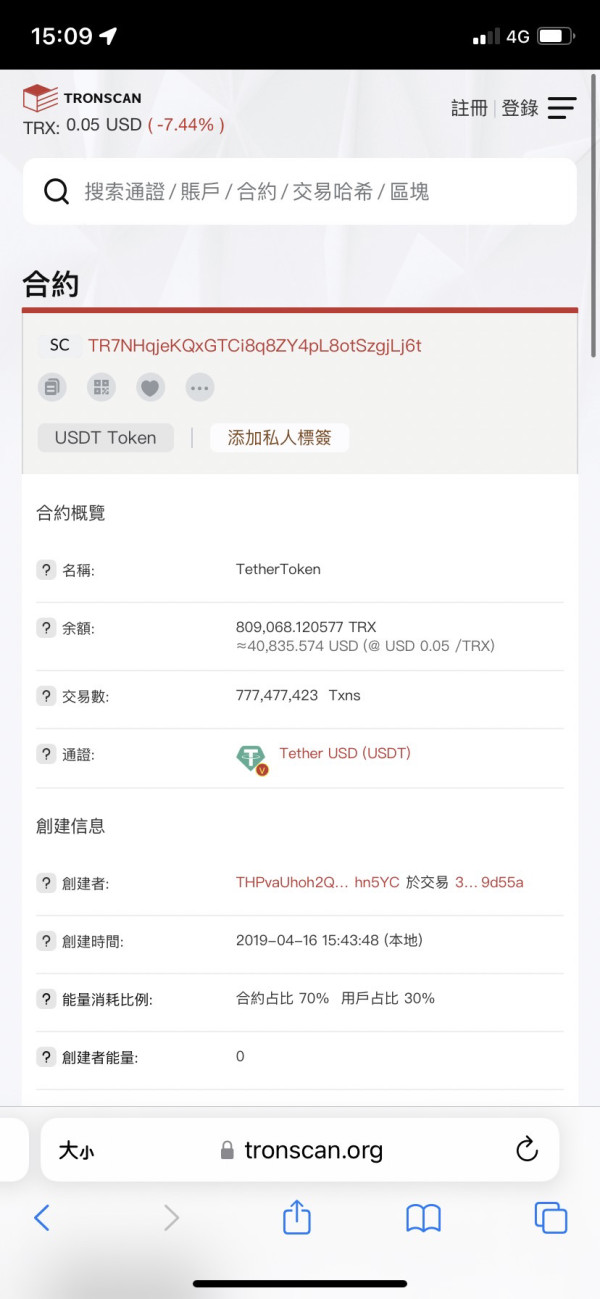Online Trading 2025 Review: Everything You Need to Know
Executive Summary
This comprehensive online trading review evaluates the current landscape of digital trading platforms. We focus particularly on ETRADE as a leading representative of the industry. ETRADE was established in 1982 as a pioneer in both mobile and online trading. The company continues to deliver exceptional trading experiences through its sophisticated platform ecosystem.
The broker stands out with its $0 commission structure and robust technological infrastructure. This infrastructure seamlessly integrates intuitive navigation, comprehensive portfolio management, and advanced risk assessment tools. The platform demonstrates particular strength in serving both novice investors and experienced traders. It achieves this through its carefully balanced approach to complexity and accessibility.
E*TRADE's mobile experience represents industry-leading innovation. The platform combines deep research capabilities with easy-to-digest educational content and sophisticated trading tools. The broker's commitment to technological excellence is evident in its complex trading functionalities. At the same time, it maintains user-friendly interfaces that cater to investors across all experience levels.
Important Notice
This evaluation acknowledges that online trading services may vary significantly across different geographic regions. These variations occur due to varying regulatory requirements and local market conditions. Different jurisdictions may impose distinct compliance standards that could affect user experience, available features, and service delivery methods.
Our assessment methodology incorporates publicly available data, user feedback analysis, and industry benchmarking. This approach helps us provide comprehensive evaluation criteria. Readers should verify specific service availability and regulatory compliance in their respective jurisdictions before making trading decisions.
Rating Framework
Broker Overview
ETRADE Financial Corporation was founded in 1982. The company represents one of the pioneering forces in the online trading revolution. ETRADE has consistently maintained its position at the forefront of digital trading innovation. The company transformed from early electronic trading systems to today's sophisticated multi-platform ecosystem.
As an industry veteran, E*TRADE has witnessed and actively shaped the evolution from traditional brokerage models to modern self-directed trading platforms. The company's business model centers on providing comprehensive online trading services. These services encompass stocks, options, exchange-traded funds, and various other financial instruments through technologically advanced platforms.
The broker's operational framework emphasizes accessibility and efficiency. It offers both web-based and mobile trading solutions that cater to diverse investor preferences. E*TRADE's platform architecture supports multiple asset classes including foreign exchange, equities, and contracts for difference. However, specific regulatory approvals may vary by jurisdiction.
According to available information, the company maintains focus on delivering zero-commission trading for standard equity transactions. This represents significant cost advantages for active traders. The platform's educational resources and research tools position it as a comprehensive solution for investors seeking both execution capabilities and market intelligence.
Regulatory Landscape: Specific regulatory information regarding E*TRADE's oversight authorities was not detailed in available materials. However, as an established U.S.-based broker, the company operates under standard financial services regulations.
Deposit and Withdrawal Methods: Available materials did not specify particular funding mechanisms. Major brokers typically support bank transfers, credit cards, and electronic payment systems.
Minimum Deposit Requirements: Specific minimum deposit amounts were not detailed in the source materials. This suggests potential variation based on account types and regional requirements.
Promotional Offerings: Current bonus or promotional programs were not specified in available information. This indicates potential seasonal or targeted campaign structures.
Tradeable Assets: E*TRADE provides access to foreign exchange markets, equity securities, options contracts, and various derivative instruments. However, specific availability may depend on regulatory jurisdiction and account classification.
Cost Structure: The platform's primary competitive advantage lies in its $0 commission policy for standard equity trades. However, specific spread information and additional fees were not detailed in source materials.
Leverage Ratios: Specific leverage offerings were not mentioned in available information. These likely vary based on asset class and regulatory requirements.
Platform Selection: E*TRADE delivers robust online and mobile trading platforms with integrated analytical tools and portfolio management capabilities.
Geographic Restrictions: Specific regional limitations were not detailed in available materials.
Customer Service Languages: Available support language options were not specified in source documentation.
This online trading review indicates that while E*TRADE provides comprehensive trading solutions, some operational details require direct verification with the broker.
Account Conditions Analysis
E*TRADE's account structure demonstrates strong competitive positioning through its diverse offering. The platform is designed to accommodate traders across different experience levels and investment approaches. The broker's account framework appears to support multiple tiers. However, specific details regarding individual account types were not comprehensively outlined in available materials.
The $0 commission structure represents a significant competitive advantage, particularly for active traders who execute frequent transactions. This policy can result in substantial cost savings compared to traditional fee-based models. The account opening process, while not detailed in source materials, likely follows industry-standard procedures requiring identity verification and financial suitability assessments.
E*TRADE's established market presence suggests streamlined onboarding procedures. However, specific timeframes and documentation requirements would need verification directly with the broker. The platform's focus on serving both beginners and experienced traders indicates flexible account configurations. These can accommodate varying trading volumes and investment strategies.
Account management capabilities appear robust based on the platform's emphasis on portfolio management and risk assessment tools. However, specialized account features such as Islamic-compliant trading accounts or institutional-grade services were not specifically mentioned in available information. The broker's long-standing industry presence suggests comprehensive account support infrastructure. However, specific minimum balance requirements and account maintenance fees require direct clarification.
This online trading review suggests that E*TRADE's account conditions favor cost-conscious traders seeking professional-grade trading infrastructure.
E*TRADE's technological infrastructure represents one of its strongest competitive advantages. The platform offers comprehensive analytical capabilities that serve both fundamental and technical analysis approaches. The platform integrates robust portfolio management tools with sophisticated risk assessment capabilities. This enables traders to monitor and optimize their positions effectively.
According to available information, the broker provides deep research resources that support informed decision-making across various market conditions and asset classes. The educational component of E*TRADE's offering deserves particular recognition. It features easy-to-digest content specifically designed to support beginning traders while maintaining depth sufficient for experienced investors.
This balanced approach to educational resources demonstrates the platform's commitment to trader development and long-term client relationships. The research capabilities extend beyond basic market data to include analytical insights. These can enhance trading strategies and market understanding.
Trading tools encompass advanced charting capabilities and technical indicators that support detailed market analysis. The platform's mobile optimization ensures that these analytical capabilities remain accessible across different devices and trading environments. Complex trading tools are seamlessly integrated with user-friendly interfaces. This allows sophisticated strategy implementation without overwhelming novice users.
The combination of intuitive navigation with comprehensive functionality positions E*TRADE's tools and resources as industry-leading. This is particularly true for traders who value both accessibility and analytical depth. However, specific details regarding automated trading support and algorithmic trading capabilities were not detailed in available materials.
Customer Service and Support Analysis
While specific customer service details were not comprehensively covered in available materials, E*TRADE's established market presence and focus on user experience suggest standard industry support infrastructure. The broker's emphasis on intuitive platform design may reduce support requirements. This is achieved by addressing common user challenges through improved interface design and educational resources.
However, comprehensive evaluation of customer service quality requires direct assessment of response times, support channel availability, and resolution effectiveness. The platform's educational focus suggests proactive support through self-service resources. This potentially reduces dependence on direct customer service interactions for routine inquiries.
E*TRADE's long-standing industry presence indicates developed support procedures. However, specific details regarding 24/7 availability, multilingual support, or specialized trading desk assistance were not detailed in source materials. The broker's technological sophistication suggests modern support infrastructure. This potentially includes online chat, email, and telephone support channels.
Customer service quality assessment typically depends on factors such as first-contact resolution rates, average response times, and agent expertise levels. While these specific metrics were not available in source materials, E*TRADE's market positioning suggests professional support standards consistent with established financial services providers. The platform's focus on serving diverse trader populations from beginners to experienced investors indicates support staff training across various complexity levels.
However, specific information regarding dedicated account management, priority support tiers, or specialized technical assistance requires direct verification with the broker.
Trading Experience Analysis
E*TRADE's trading experience receives strong evaluation based on its technological infrastructure and user interface design. The platform demonstrates excellent stability according to user feedback. It features intuitive navigation that facilitates efficient trade execution across different market conditions.
The broker's mobile experience particularly stands out. It offers comprehensive functionality that maintains desktop-level capabilities while optimizing for mobile device constraints and usage patterns. Platform functionality encompasses robust charting tools and comprehensive technical indicators. These support detailed market analysis and strategy development.
The integration between research capabilities and execution tools creates seamless workflow for traders who rely on analytical insights to inform their trading decisions. Order execution quality, while not specifically detailed in available materials, appears consistent with industry standards. This assessment is based on the platform's technological sophistication and established market presence.
The trading environment benefits from E*TRADE's focus on both simplicity and sophistication. This allows users to access complex trading tools without compromising ease of use. Mobile application performance receives positive user feedback. This indicates successful optimization for various device types and operating systems.
The platform's ability to cater to investors and traders of all levels suggests flexible interface options. These can accommodate different experience levels and trading approaches. However, specific technical performance data such as execution speed metrics, slippage statistics, or platform uptime records were not detailed in available materials.
The broker's emphasis on portfolio and risk management capabilities suggests comprehensive position monitoring tools. However, detailed spread stability and liquidity information requires direct verification. This online trading review indicates that E*TRADE's trading experience emphasizes reliability and user-friendly design while maintaining professional-grade functionality.
Trust and Reliability Analysis
E*TRADE's trust profile benefits significantly from its established market presence since 1982. This represents over four decades of continuous service in the financial markets industry. This longevity indicates successful navigation of various market cycles, regulatory changes, and technological evolution. It suggests institutional stability and adaptive capability.
The company's pioneer status in online trading demonstrates innovation leadership and market foresight. This has contributed to its sustained market position. While specific regulatory details were not comprehensively outlined in available materials, E*TRADE's operation as a major U.S.-based financial services provider suggests compliance with standard industry oversight requirements.
The broker's established presence indicates appropriate licensing and regulatory adherence. However, specific regulatory numbers and oversight authorities require direct verification. Fund security measures, while not detailed in source materials, likely follow industry-standard practices including segregated client accounts and regulatory capital requirements.
Company transparency appears consistent with public company standards. This is based on E*TRADE's market presence and established operational history. The broker's technological investments and platform development suggest ongoing commitment to service quality and client satisfaction.
Industry reputation indicators, while not specifically detailed in available materials, appear positive based on the platform's continued market presence and user adoption rates. However, specific information regarding recent regulatory actions, third-party security audits, or industry awards was not available in source materials. The broker's handling of market stress events or operational challenges also requires additional research beyond available information.
Overall trust assessment suggests solid institutional foundation with appropriate regulatory compliance. However, specific verification of current regulatory status and security measures remains advisable.
User Experience Analysis
E*TRADE's user experience design demonstrates strong focus on accessibility and functionality balance. The platform successfully serves both beginning investors and experienced traders through thoughtful interface design. The platform's intuitive navigation receives positive recognition. This indicates successful user interface optimization that reduces learning curves while maintaining comprehensive functionality access.
This balanced approach suggests extensive user testing and iterative design improvement based on actual trader feedback and usage patterns. Interface design and usability appear to prioritize clarity and efficiency. The navigation structures facilitate quick access to essential trading functions and analytical tools.
The mobile platform integration demonstrates particular strength. It maintains desktop functionality while optimizing for mobile-specific usage patterns and device constraints. This cross-platform consistency suggests comprehensive design standards. These ensure user experience quality regardless of access method or device type.
Registration and verification processes, while not detailed in available materials, likely follow streamlined procedures consistent with the platform's focus on user-friendly design. The broker's emphasis on educational resources and intuitive navigation suggests onboarding procedures designed to minimize complexity. At the same time, these maintain necessary compliance requirements.
Account setup efficiency appears optimized for user convenience. However, specific timeframes and documentation requirements need direct verification. The platform's ability to serve diverse user populations from novice to experienced traders indicates flexible customization options and scalable complexity levels.
User satisfaction appears positive based on available feedback. However, comprehensive user sentiment analysis would require broader review aggregation. The integration of educational content with trading tools suggests user-centric design philosophy. This supports trader development and long-term platform engagement.
However, specific user retention metrics, satisfaction surveys, or usability testing results were not available in source materials.
Conclusion
This comprehensive online trading review confirms ETRADE's position as a leading provider of online trading services. The platform demonstrates particular strength in technological innovation, cost-effective trading through $0 commissions, and user experience design. ETRADE successfully balances sophisticated functionality with accessible interfaces. This makes it suitable for traders across different experience levels and investment approaches.
ETRADE's established market presence since 1982 provides additional confidence in institutional stability and service continuity. The broker appears most suitable for traders who prioritize cost-effective execution, comprehensive analytical tools, and reliable platform performance. Both beginning investors seeking educational support and experienced traders requiring advanced functionality will find appropriate resources within ETRADE's platform ecosystem.
The mobile trading experience represents particular value for traders who require flexible access to markets and portfolio management capabilities. Primary advantages include the competitive $0 commission structure, robust technological infrastructure, and comprehensive educational resources. However, potential limitations include incomplete publicly available information regarding specific regulatory details and operational procedures that may require direct verification with the broker.








